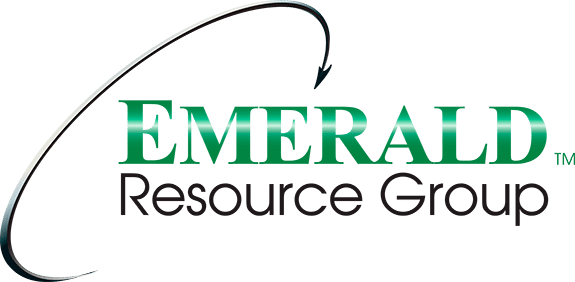Preparation
Face to Face Interview Tips
Employers are continually amazed at the lack of a candidate’s preparation regarding the company and the position for which they are interviewing. Remember, the amount of preparation that you have done is the first indicator to showing a sincere interest in the position.
Preparation gains the competitive edge in the first interview so you can increase the probability of getting the opportunity and offer you want. The following are ingredients for a successful interview:
Physical Preparation:
It’s important to plan the image you wish to portray to your prospective employer. Dress according to conservative codes, regardless of what attire may be appropriate for the position you seek. Dress in a professional, conservative manner. Your personal taste may not be the best guide.
Attitude Preparation:
The objective of the interview is to leave a favorable impression. Always conduct yourself as if you are determined to get the opportunity you are discussing so that all possibilities remain open to you. Your goal on an interview is to learn all you can about the company and the opportunity as well as to present yourself in the best possible manner. If your decision at the end of the discussion is to join that organization, that positive attitude needs to have been conveyed throughout the interview, not just at the end.
What You Should Know About an Employer:
In a matter of a few hours of interviewing, you will be making one of the more important decisions of your life. It is essential that you prepare yourself for that decision.
Do your “homework”. By doing so, you demonstrate a genuine interest in their company and the opportunity. Be prepared to know the answers to the following questions prior to meeting the potential employer:
- What products or services does the company offer?
- When was the company established?
- What is the approximate sales volume?
- What has been their growth in volume and market share?
- What is their marketplace? Who is their competition? Who are their customers?
- Is the company a centralized or decentralized organization?
If it’s a small company, call the Recruiter, Controller or Sales Manager and ask for their assistance to prepare you for your interview. Then ask them the list of questions. Use the list of questions above, as well as product bulletins, annually reports, marketing brochures, etc. to familiarize yourself with the company.
Phone Interview
The most important objective to remember is that you are working toward a face-to-face interview with the employer. Also remember that the OBJECTIVE OF ANY INTERVIEW is to get the potential employer interested in you. To make your best impression, communicate positively and with enthusiasm. Remember, you do not have the benefit of facial expressions and eye contact to show your interest. Follow the guidelines listed below.
- Make sure you are in an area where you are free to talk in a normal tone of voice. Avoid a workplace, for example, where you must whisper.
- The phone should be held securely and the receiver should be about one-half
inch from you lips. You should speak in a normal conversational manner and
enunciate well – Do not yell or mumble. - Background noises can be loud, choose a quiet, private area. . If you have the “Call Waiting” feature on your phone, never, under any circumstance, should you answer it while conducting a phone interview. It may convey disinterest and disregard for the interviewer’s time.
- If you are asked about salary be honest about your current salary. If you
are asked what salary you expect for a new opportunity, reply “I am looking for the best career opportunity based on my qualifications. I’m confident we could work out the details if you feel I am the right candidate for the position.” - BEWARE – negative remarks or criticism of a former employer is ALMOST SURE
to hurt you. Be prepared to explain your job changes without criticism of
the company and management. Be as positive as possible when discussing the
reason for leaving your current job. - At the end of the conversation ask about a date for an interview at the
employer’s location. Make sure that you have dates in mind concerning when
you can be available. Be as flexible as possible with the employer concerning these dates.
When conducting your job search always keep a resume near the phone. In case you receive an unscheduled call from a potential employer. This will also keep you prepared for previously scheduled phone interviews.
Interview Questions
During your interview, you have two main goals:
- Convince the employer you can make a positive contribution to their organization.
- Convince the employer you will be a contributing member of their team.
Keep in mind that both you and the employer are selling and evaluating each other.
General Guidelines for Interview Conduct:
- Arrive 5-10 minutes early. Late arrival for a job interview is never excusable. (Learn the route and the time it will take to travel to the interview). Upon arrival, use extra time to review resume, review interview objectives, and absorb the office surroundings and environment (i.e., look at any plaques and awards, company materials, etc.). Be polite and friendly to everyone you meet. Many employers check with their receptionist/secretary to see how a candidate waiting to be interviewed
- If presented with an application, fill it out neatly and completely even if you have the same information on your resume. Do not indicate, “see resume.”
- Relax. Remember that positive thinking is the key. Shake hands firmly, but don’t squeeze. Smile. Maintain eye contact, and greet the interviewer with his or her surname.
- Let the interviewer set the tone and tempo for the interview. Listen, take notes and DON’T INTERRUPT! The first few minutes should be devoted entirely to building rapport. Encourage the hiring manager to talk about him or her and the company. Re-state what you know about the company and express enthusiasm.
- If possible, compliment the interviewer on something in his/her office; i.e., company award or plaque, but don’t talk about family or clothing.
- Listen for “buzz words.” Every company has them. Present these buzz words back to your interviewer. (This gives the impression of a working knowledge of the company’s system).
- Direct the interviewer to detail the duties of the position in the interview so that you can relate your background and skills to their needs. State for example, “I can provide you with greater details, but I’m sure they would be more applicable if you tell me specifically what are the three or four most important skills you are looking for in this position.”
- Make sure that your positive traits are communicated to the interviewer in a factual and sincere manner. Use action verbs and success phrases as part of your interview. They make you shine.
- Emphasize your strong points and minimize your liabilities. For example: “I always give 110% to whatever project I’m working on and try very hard to lead by example.” Stay calm and positive when challenged.
- Respond to each question thoughtfully, truthfully, concisely, and completely. Get the interviewer to do most of the talking by following up your response with a question.
- Be aware of your posture and body language. They communicate attitude and first impressions.
- Never close the door on an opportunity. Always conduct yourself as if you were determined to get the position you are discussing.
- Manage the interview. Do not take charge, but establish equal status (not subordinate, not dominant).
- Always present a positive statement about your last employer. DO NOT convey negative feelings. Accentuate the positive; you’ll look like a winner.
- Admire the achievements of the employer. Where possible, tie in your background to the company.
During the interview, your comments and actions should convey the following attributes:
- Enthusiasm
- Dependability
- Confidence
- Loyalty
- Energy Honesty
Interview Questions to Expect
- Tell me about yourself. Keep your answer in the professional realm ONLY. The first sentence should be a career summary, for example: “I have 15 plus years of information systems experience”. The second sentence should be an accomplishment that relates to the position, for example: “One of my most recent accomplishments has been directing an E-Commerce initiative that increased sales by 10% while saving my present company 18% in inventory cost”. Third sentence should be a question. (A 3-4 sentence is appropriate), something like: “Before I explain more of my experience may I ask you what experience your looking for so I can talk more specifically to the skills you have identified as important to have”.
- What do you know about our organization? (If you’ve done your research correctly, you should have no problem answering this one. Be positive).
- Why are you interested in this position? (Relate how you feel your qualifications really match the requirements of the job. Also, express your desire to work for that company).
- Why do you want to change jobs? or why did you leave your last job? or what have you been doing since your job was eliminated? (The interviewer is looking for motives for changing jobs).
- What do you identify as your most significant accomplishment in your last job? (He/She is looking for your strengths).
- How many hours do you normally work per week? (He/She wants to know more about your work ethic). Example: I do what it takes to get the job done.
- What did you like and dislike about your last job? (He/She is looking for negatives, give positives).
Example: I always give 110% to whatever project I’m working on, so I get frustrated at times when other members of the team don’t pull their weight. I lead by example rather than express my frustration openly. - How did you get along with your superiors and subordinates? (He/She is looking for your ability to fit in).
- How would you evaluate the company you were with last? (Again, he/she wants to know your ability to judge fairly).
- What were its competitive strengths and weaknesses? (Again, he/she wants to know your ability to judge fairly).
- What would you like to tell me about yourself? (Ask: “What would you like to know?”).
- What best qualifies you for the available position? (Directly apply your qualifications to the position requirements).
- How long will it take you to start making a significant contribution? (Be realistic, but positive).
- How do you feel about our company- it’s size, industry, and competitive position? (Be positive).
- What interests you most about the available position? (Talk about responsibilities and career growth. Do not mention money!).
- How would you structure this job or organize your department? (“Obviously, I would need to know more about how your company functions and operates, but my initial thoughts are: __________________.” [Shows your industry knowledge and homework] ).
- What are your greatest strengths and weaknesses? (Be positive).
- What is the potential of the job you are in now? (Be realistic, but positive).
- What are your career goals?
- Do you want to own your own business? (Depending on the situation. “Right now I want to work for your company.” (Questioning longevity).
- How long will you stay with us? Are you willing to relocate? (Questioning loyalty).
- Have you kept up in your field? (Dedication to education).
- What do you do in your spare time? (Motivation).
- Do you participate in civic affairs? (Community involvement.).
- What professional organizations do you belong to? (Usually a plus).
- How aggressive are you? (“Not overly, but competitively”).
- What motivates you to work? (“The sense of accomplishment and reward of getting the job done”).
- Is money a strong incentive for you? (“Certainly, but other factors are also important.”).
- Would you rather work alone or on a team? (Keep in mind what he/she is looking for).
- What do you look for when hiring people? (Attribute that he/she is looking for).
- Have you ever fired anyone? (Answer honestly if you have ever fired anyone. If not, let him/her know that if necessary you could do it).
- Will you sign a non-compete agreement or employment contract? (“Is it a requirement?”).
- What salary do you expect to receive? (State your present salary and: “I’m sure if you feel I am the right candidate for the position we can come to something agreeable. What did you have in mind?”).
- What was the salary of your last job? (Be honest).
- Why should we hire you? (List your strengths as they apply to needs).
Interview Questions to Ask
- What are the three or four most important qualities you are looking for?
- What is the first issue that needs the attention of the person you hire?
- What other situations need attention now?
- How has the job been performed in the past?
- Is the opportunity available due to a promotion?
- What are the major responsibilities of this position?
- What are this division’s/branch’s five-year sales projections?
- What needs to be done to reach these projections?
- What are the company’s major strengths and weaknesses in their product line?
- Whom would you identify as your major competitors? What is your market share?
- How do you view the future for your industry and product line?
- Do you have any plans for new products, services, or acquisitions?
- What can you tell me about the individual to whom I would report?
- What can you tell me about my coworkers?
- How would you define your management philosophy?
- Tell me about your career with the company.
- Describe the training and orientation program.
- Before the interview concludes, ask the interviewer if he/she has any more questions.
What Not to do in an Interview
- Avoid answering questions with a simple yes or no. Relate back to your own accomplishments whenever possible. Avoid close-ended questions.
- Never lie. Remember you are building a long-term relationship based on mutual respect and trust.
- Never make derogatory statements about your present or former employers. The interviewer may question what you might say about him/her.
- Make sure the employer realizes your interest is based on a positive opportunity they have available, not a reaction to a negative situation in which you may be currently involved.
- Do not inquire about salary, vacations, bonuses, retirement, or any other benefits. If the employer initiates the subject of salary, indicate that your interest will be based upon the company itself, the position, and the opportunity. If those aspects are positive to both you and the employer, express your belief that together you can work out the details. Never tell a potential employer the exact figure you require in salary.
- Never be overbearing, overly aggressive, conceited, or leave the opinion that “you know it all.”
- Do not make excuses or be evasive regarding unfavorable factors in your background. Simply try to put them in a positive light. Remember that honesty is the best policy.
- Do not display the “What can you do for me?” attitude. Even though you are also “interviewing” your potential employer and the company, allow the employer to feel that he/she is conducting the interview.
Closing the Interview
Too many people second-guess themselves after an interview. By closing strongly and asking the right questions, you can eliminate the post-interview doubts that tend to plague most interviewees. If you feel that the interview went well and you would like to take the next step, express your interest to the hiring authority, turning the tables a bit. Try the following:
“After hearing more about your company, the position and the responsibilities at hand, I am certain that I possess the qualities you are looking for in the (title) position. Based on our conversation and my qualifications, are there any issues or concerns that you have that would lead you to believe otherwise?”
You have a right to be assertive. This is a great closing question because it opens the door for the hiring authority to be honest with you about his or her feelings. If concerns do exist, this is a great opportunity to overcome them and to clarify outstanding questions. You have one final chance to dispel the concerns, address outstanding questions, sell your strengths and end the interview on positive note.
A few things to remember during the closing process:
- Don’t be discouraged if no definite offer is made or specific salary discussed. The interviewer will probably want to communicate with the office first, or interview other applicants, before making a decision.
- Make sure you answer the following two questions: “Why are you interested in the company?” and “What can you offer?”
- Express thanks for the interviewer’s time and consideration.
Ask for the interview’s business card so you can write a thank you letter as soon as possible.
After the Interview
Follow-up
When you get in your car, immediately write down key issues uncovered in the interview. Think of the qualifications the employer is looking for and match your strengths to them. Call your recruiter! Follow-up now is critical.
A “thank you” letter should be written no later than 24 hours after the interview.
Sample Letter of Resignation
Dear Boss,
Please accept this letter as my official notice of resignation. I appreciate the work we have been able to accomplish together at (company name), but I have now made a commitment to another organization and will begin with them in two weeks.
Know that it is my intention to work diligently with you to wrap up as much as possible in the next two weeks to make my resignation as smooth as possible. If you have any suggestions on how we can best accomplish that goal, I hope you will share your thoughts with me, as I am eager to leave on the most positive note possible.
Sincerely,
(Your Name)
Additional Tips & Methods for Interviewing:
(Thank you Mashable)





